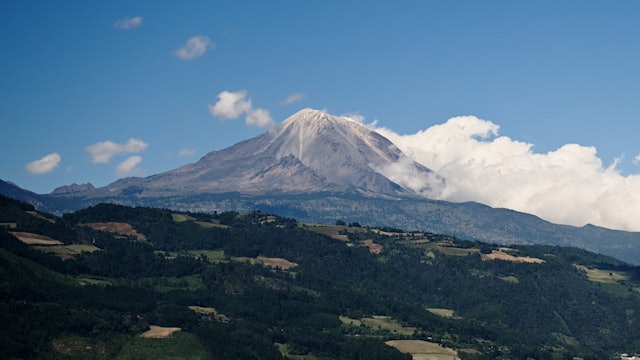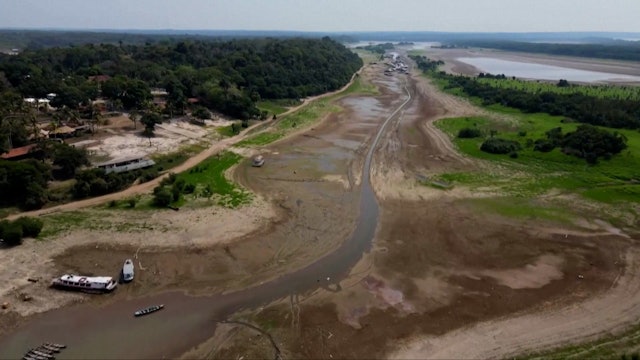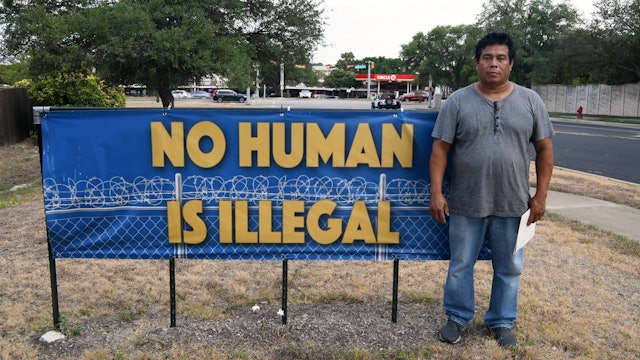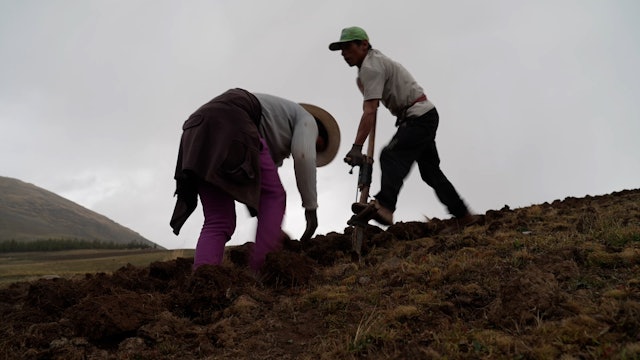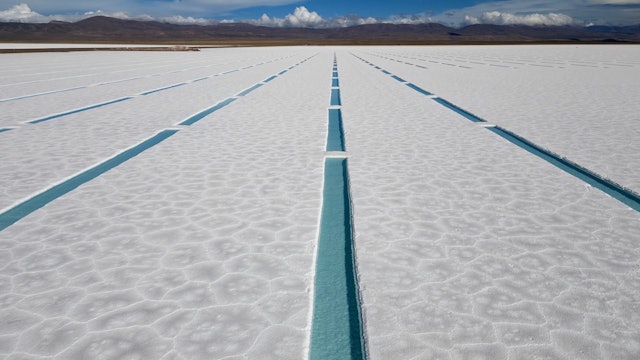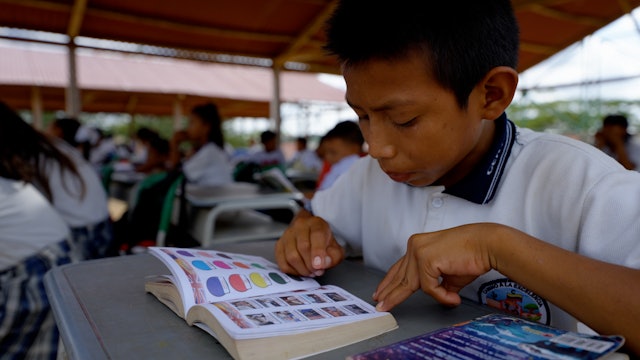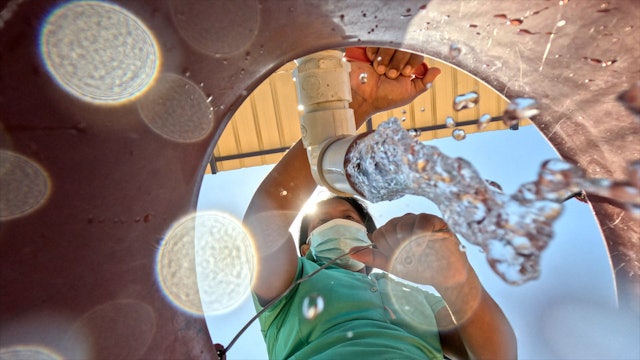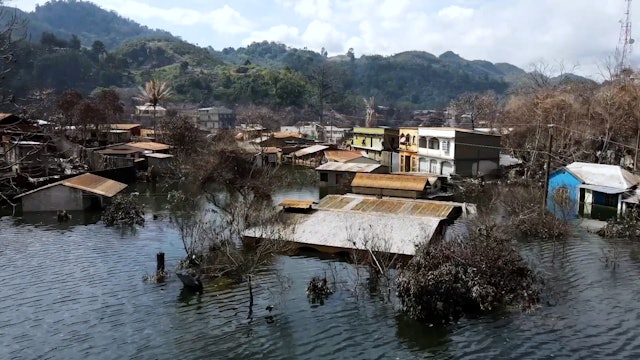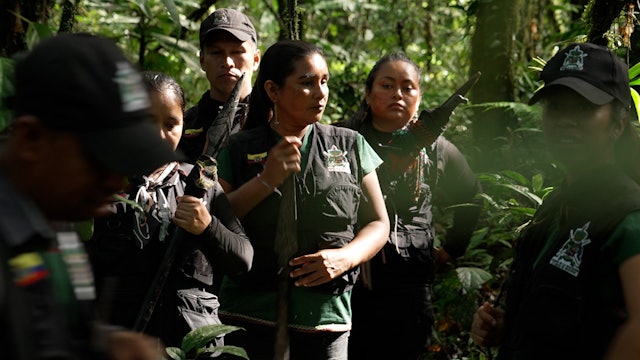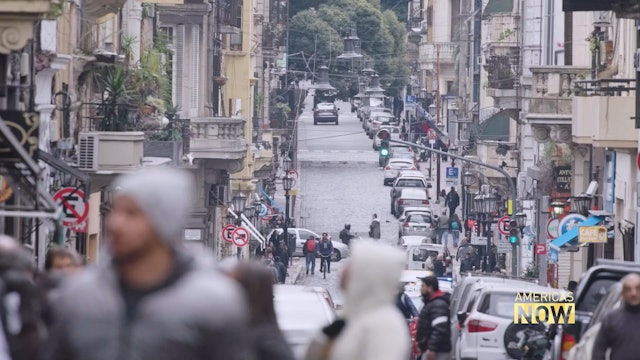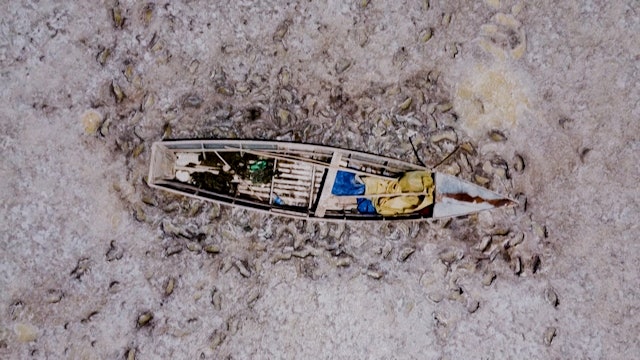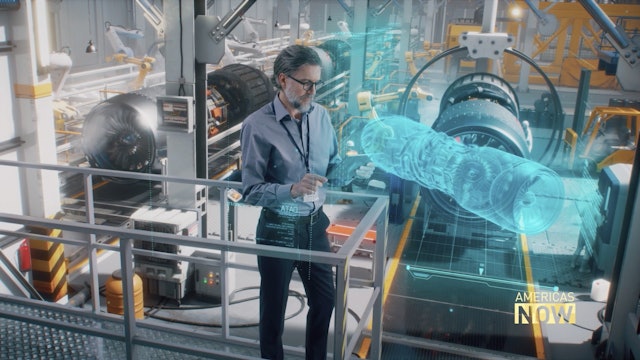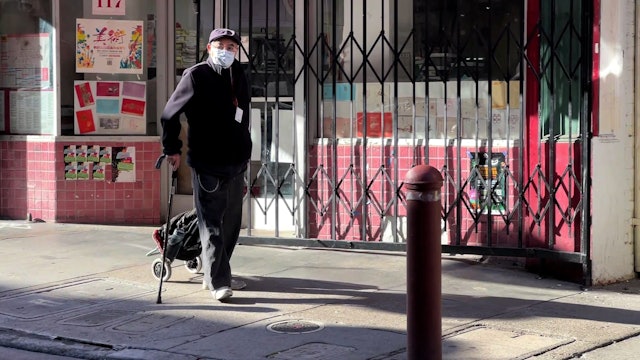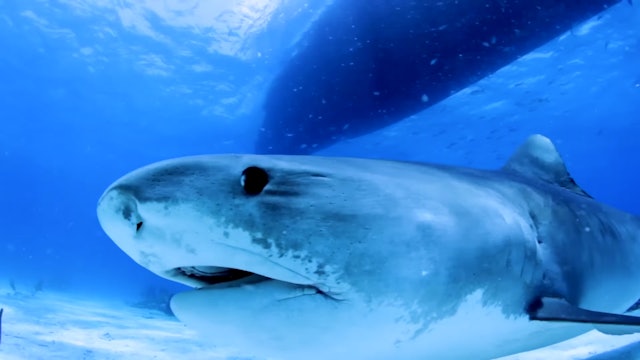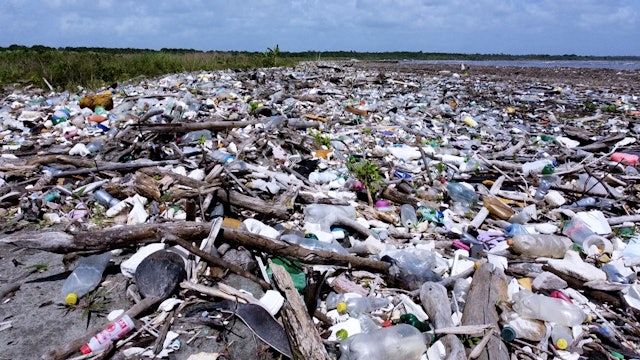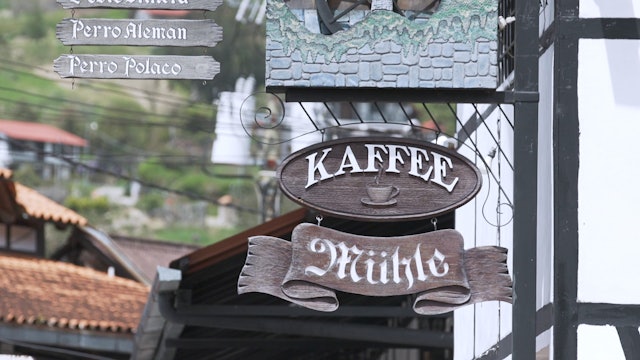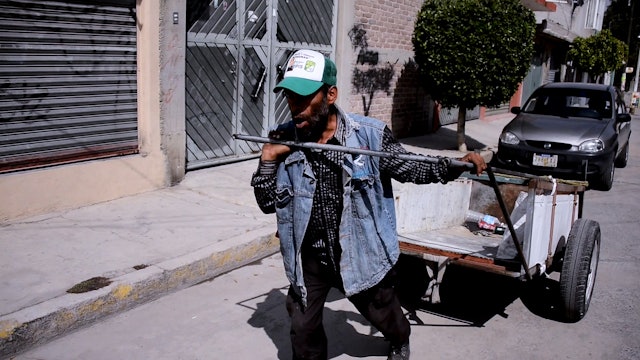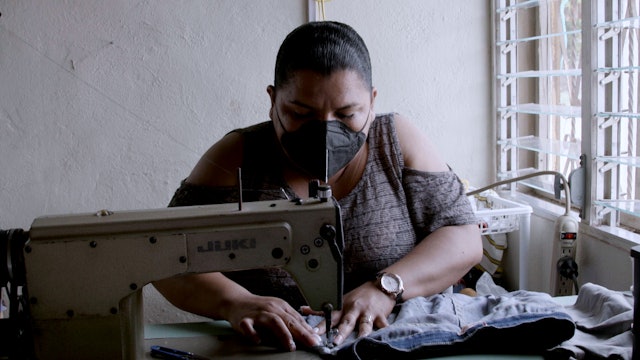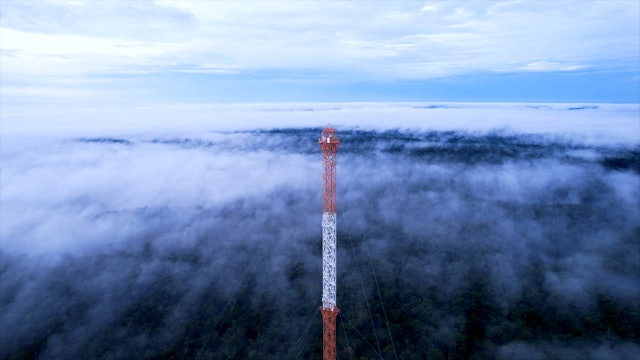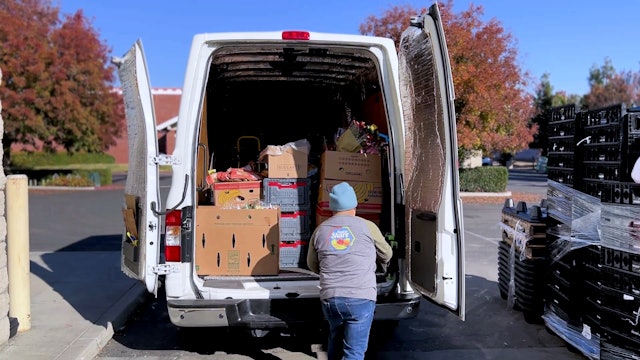Americas Now
Join us in uncovering the untold tales that influence our collective future in "Americas Now." Discover the richness, variety, and vitality of the Americas in a whole new way. Every story is a journey, and every journey is an adventure.
-
This week on Americas Now: The melting of the Jamapa glacier in Mexico
Glaciers worldwide are melting due to climate change, leaving the central highlands’ snow-peaked mountains in Mexico increasingly bare. Alasdair Baverstock reports from the highest mountain.
----
Cryptocurrencies have existed for a short time, but their rise has been rapid and, at times, very vo... -
This week on Americas Now: Droughts in Brazil and concerns for Amazon Rainforest
The Amazon Rainforest is one of the world’s largest producers of oxygen. However, a record-setting drought has been occurring across Brazil, which has caused researchers to worry that the rainforest may soon reach a point of no return. Miuda Valls has reported on the impact of this historic droug...
-
This week on Americas Now: Undocumented Migration in the U.S. and more
Join journalist Alasdair Baverstock as he uncovers the harsh realities faced by undocumented migrants in the United States. From extreme measures to sanctuary movements, explore the evolving landscape of immigration policies and their impact on vulnerable individuals.
-
This Week on Americas Now: Haiti: From Natural Disasters to Criminal Gangs
Join us as we delve into the ongoing struggles of Haiti and the brave battle that its people are fighting for stability. In recent years, Haiti has faced countless challenges, from political unrest to natural disasters. But despite it all, the Haitian people remain resilient and determined to cre...
-
This Week on Americas Now: Episode 1201 Peruvian Andes Drought
The harvests of crucial crops like potatoes and corn in Peru have taken a severe hit due to a drought in the Peruvian Andes. Scientists have linked this situation to the El Niño weather and climate change. According to Dan Collyns, Junin, a mountainous region in Peru, is one of the worst affected...
-
This week on Americas Now: Episode 1202 Exploring Argentina's Lithium Potential
Lithium is critical in developing advanced batteries crucial for the clean energy movement. As a result, the price of this metal rises every year, and Argentina is a significant source of it. The question is, can Argentina capitalize on this opportunity to maximize its economic potential? Joel Ri...
-
This Week on Americas Now, The Students' Journey
Student Crossing
Every morning dozens of kids in western Venezuela leave their homes before 5:00 AM to embark on an adventurous journey to school. And it’s not just any school it’s on the other side of the border, in Colombia. Michelle Begue takes us along on their daily trek.
Plastic River ...
-
This Week on Americas Now, Water Scarcity and more
The Wayuu People's Struggle for Clean Drinking Water in the Guajira Peninsula
The Guajira peninsula, facing the Caribbean Sea, is shared by Colombia and Venezuela. It is also home to the Way indigenous people, who are the largest indigenous group in both countries. The Wayuu face numerous challen... -
This week on Americas Now: Episode 1119 Climate Change Migrants
Experts Warn: Climate Change Triggers Poverty and Migration in Rural Central America
In the mountains of rural Central America, the rainy season has become shorter and more unpredictable. Farmers cannot produce like they used to a decade ago. The situation is causing poverty and migration. Alasda... -
This Week On Americas Now: Illegal Mining in the Rainforests of Ecuador
Earlier this year, Ecuadorean President Guillermo Lasso declared illegal mining a threat to national security, linking it to organized crime. But with gold prices at an all-time high, that has done little to stop the miners. Dan Collyns visited an indigenous village where residents formed their b...
-
This Week on Americas Now Argentineans Getting Used to High Levels of Inflation
Argentineans Getting Used to Living with High Levels of Inflation
Argentina is experiencing triple-digit inflation. The South American country reached one of the world’s highest inflation rates surpassing 100 %. Most of the prices in the country have doubled. Joel Richards reports on the soaring ... -
Life in Brazil: A land of diversity
The largest country in South America, the giant emerging economy of the Americas. Brazil owns different titles but what does it really mean to be Brazilian? We had to find out for ourselves.
-
This Week, on Americas Now
Life After Lake in Bolivia Dried Up
When it comes to climate change, experts focus mainly on future events. But higher temperatures already have very noticeable consequences in the Andes Mountains. Harris Whitbeck went to Bolivia to report on how the country's second-largest lake dried up in a bl... -
Today in Technology
Over the last few years, the city of Toronto has become a global center when it comes to tech and innovation. It is the third largest technological hub in North America, with 24,000 companies that employ nearly 300,000 workers. The Americas Now team attended Toronto’s Collision Tech Conference to...
-
Americas Now Special on Technology and Connectivity.
Rio de Janeiro is home to Latin America's most significant technology conference: The Web Summit. Over 100 experts worldwide and in multiple fields shared their secrets with 21 thousand attendees this year. The big questions are how technology can create more opportunities, improve efficiency and...
-
Americas Now Special From Brazil
Brazil has the largest economy in Latin America, but at the same time, its poverty rate remains high. According to the official statistics agency, in 2021, Brazil had over 62 million people experiencing poverty and almost 20 million enduring extreme poverty. Can science, innovation, and technolog...
-
Fewer Asian Americans Experiencing Homelessness in the USA
There are currently close to 600-thousand homeless people in the United States. While all ethnic groups in the US experience homelessness. One of them is experiencing very little: Asian Americans.
Then, Living Under El Salvador Draconian Abortion Laws
Dozens of women have been convicted and sent... -
Sharks Attacks
The United States is by far the country with the most shark attacks recorded in modern history. And Florida is where most of these attacks, bites and fatalities occur. Correspondent John Zarrella talked with some scientists about the recent uptick in shark encounters. He also met with some victim...
-
Plastic Waste
In 2017, a dispute erupted between Honduras and Guatemala over tons of plastic trash that was washing up on beaches of the Atlantic Ocean. Both countries share the Motagua River. But Honduras accused Guatemala of not doing enough to control its huge waste management problem. Harris Whitbeck follo...
-
Colonia Tovar
t's a village that has houses built in the German architectural style, locals speaking German on the streets and a brewer producing Bavarian beer. But it's not located in Europe. It's two hours outside Caracas, in Venezuela. Colonia Tovar was founded in the 1840´s by German immigrants. The town e...
-
Mexico's Wealth Gap
In a time of rising inflation and higher costs of living, wealth inequality is a growing concern. And Latin America is one of the most unequal regions in the world. Correspondent Alasdair Baverstock brings us the case of Mexico, where the extremely rich live alongside those who earn very little, ...
-
Migrants Rerouted
Every year tens of thousands of migrants attempt the dangerous journey from their homes in El Salvador and Honduras to the United States. Some make it the US border, only to be turned back. Others don't even make it that far. But a program in Guatemala is offering them hope that is not so far fro...
-
Amazon Lab Tower
Brazil is by far the most biologically-diverse country in the world. It's home to over 130,000 living species of flora and fauna. Correspondent Maria Valls reports on how scientists study and protect one of Nature's greatest sanctuaries: the Amazon rainforest.
-
Food Waste in the U.S.
According to the US Environment Protection Agency, almost one third of the food that is produced, shipped or sold is wasted. And most of it is uneaten. Mike Kirsch tells us about the efforts underway in California to prevent food from being thrown away.



